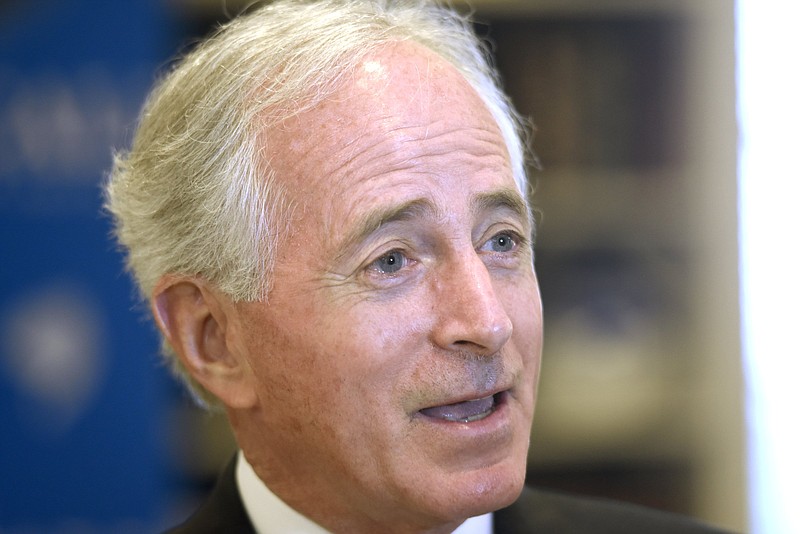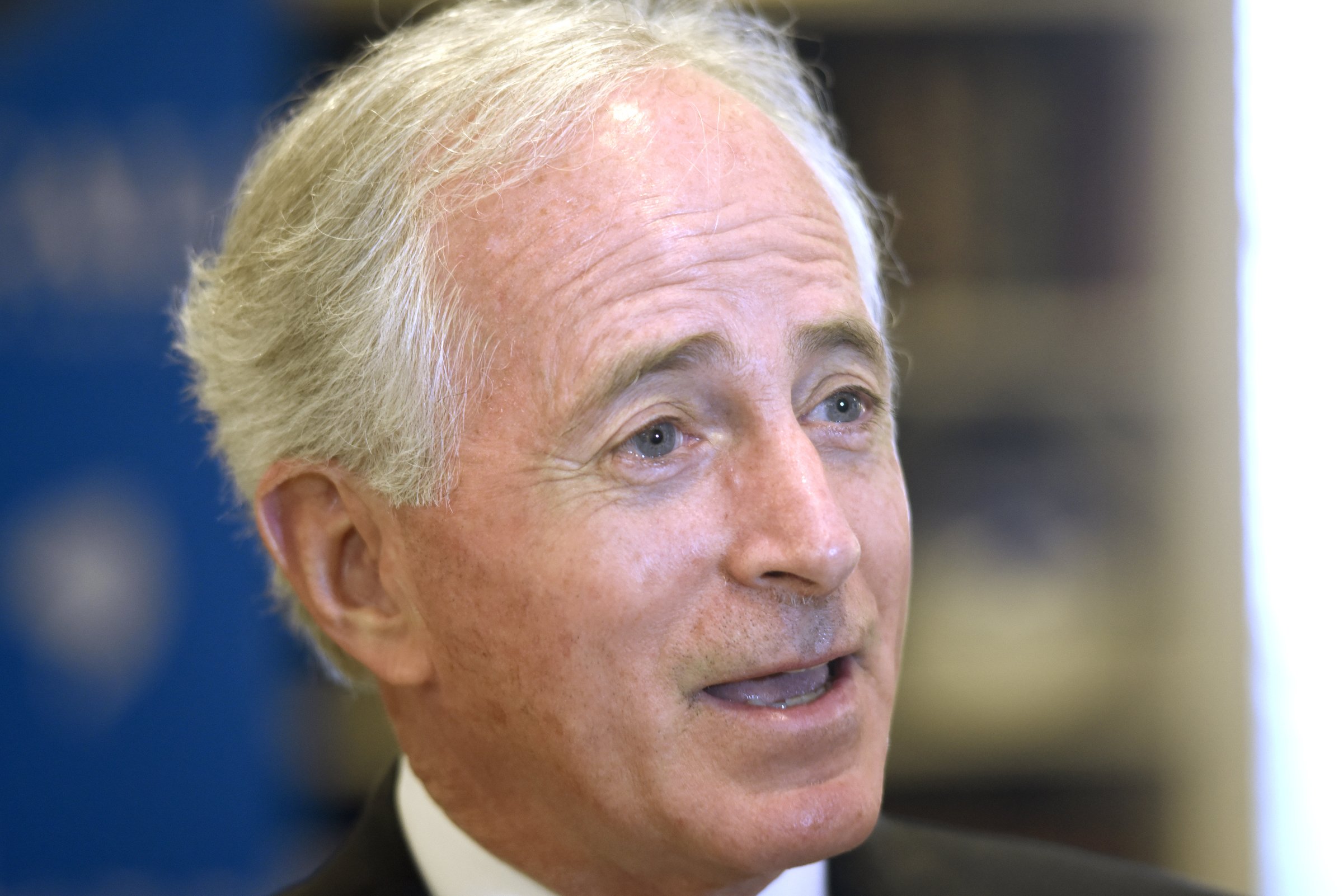While downtown Chattanooga's riverfront and Southside are flourishing, the city's central business district needs to recruit more corporate jobs, former U.S. Sen Bob Corker said Monday.
"It's just kind of dead," said Corker, who is also a former Chattanooga mayor. "We've got to figure out a way to make sure we energize that somehow."
Part of accomplishing that is strengthening recruitment of corporations to downtown, which the city hasn't been as effective in doing, Corker told a group of nearly 50 Urban Land Institute members in Chattanooga.
"Without major corporations locating in your downtown area, it's difficult to energize," he said. "We've got to do a little better job."
Corker, who left the U.S. Senate at the end of last year after two terms, said downtown has kept key companies such as Unum Group and BlueCross BlueShield of Tennessee in the central city. He said he also likes the innovation and technology efforts downtown.
But the city has to figure out a way to attract more major corporations, he said.
"We've had a thrust of that in the past," said Corker, who served as mayor from 2001 to 2005. "We've had great success and I support the activities underway now. We've got to reinvigorate our efforts."
Such corporate investment boosts wages and "really creates a dynamism in our community," he said.
"It takes a focus on recruitment," Corker said, adding that's a challenge for the remaining time of the administration of Mayor Andy Berke and his successor.
Sybil Topel, the Chattanooga Chamber of Commerce's vice president of marketing and communications, said there's a strong and growing corporate presence downtown, including the corporate headquarter for Unum, Steam Logistics, Reliance, and FreightWaves and it's working with Arrive Logistics as it plans to expand.
"We hope to see Arrive grow to 500 people in the downtown area," she said. "However, compared to the North Shore and Southside there's been limited entertainment, restaurant and residential development in the core downtown area. We'd love to see more."
Berke told the ULI members, who are on their way to Nashville for a convention by the organization, that new policies helped jump start the growth of new housing downtown in recent years, including some 3,200 apartments in the city.
Berke said the University of Tennessee at Chattanooga also has added about 2,000 student beds.
In addition, he mentioned the Innovation District, created in 2015 in the heart of the city center and which has drawn global attention. The aim was to develop a place where entrepreneurs, tech-based startups, and business incubators can mesh and create a so-called innovation ecosystem.
Berke said the Edney Building at Market and East 11th streets was renovated and turned into a hub for the district in the effort to grow the city's knowledge economy.
"We wanted to have a downtown where people can come and collaborate, to have open spaces that felt like they belonged to everybody," he said. "I'm a believer that you don't get new ideas on your own, you get them in collaboration with other people. That's how you get new businesses."
Corker also cited the 21st Century Waterfront Plan at Ross's Landing, which wasn't on his radar screen when he ran for mayor but later emerged along with an initiative to make Chattanooga an outdoors center.
"It was an after-thought," he said about the Waterfront Plan. "It was nothing we campaigned on."
Built in 2005, it was part of $120 million in waterfront improvements essentially remaking the area around Ross's Landing.
Contact Mike Pare at mpare@timesfreepress.com or 423-757-6318. Follow him on Twitter @MikePareTFP.

